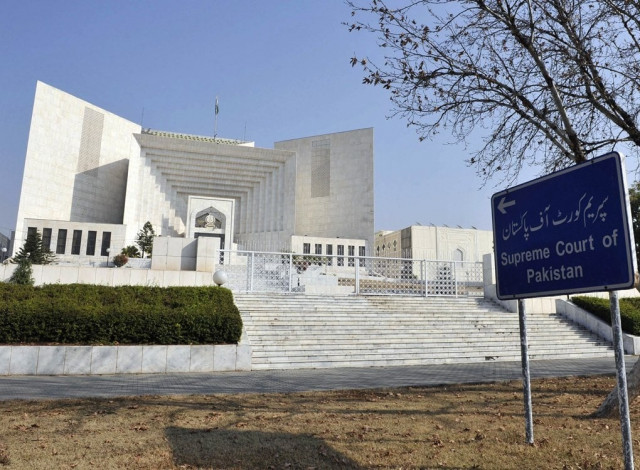Govt decides to legislate to ‘clip powers’ of Supreme Court
Parliamentary committee to be formed on judicial reforms to reconsider CJP’s authority on suo motu and forming benches

The federal government has decided to legislate on the Supreme Court's jurisdiction on suo motu notices and the powers of the chief justice to constitute benches among others.
The decision was taken during a federal cabinet meeting held under the chairmanship of Prime Minister Shahbaz Sharif in Islamabad on Wednesday, Express News reported.
Interior Minister Rana Sanaullah, while speaking to the media, said that a parliamentary committee will be formed on judicial reforms.
Sanaullah also warned of imposing governor's rule in Punjab if his entry into the province was restricted. The interior minister furthered that the work on the summary for imposing the rule had begun, which would be published by the home ministry.
The move came after the devastating blow to the nascent Shehbaz Sharif-led ruling coalition, as the Supreme Court struck down Punjab Assembly Deputy Speaker Dost Muhammad Mazari’s ruling on the election of Punjab chief minister, paving the way for PTI’s selected Chaudhry Pervaiz Elahi to ascend to the throne in the country’s political heartland.
In the conclusion to a hearing that gripped the country for the past four days, a three-member bench, comprising Chief Justice Umar Ata Bandial, Justice Ijazul Ahsan and Justice Munib Akhtar, announced an unusually harsh verdict after over a three-hour delay on Tuesday.
Also read: Sanaullah threatens governor's rule in Punjab
Meanwhile, Supreme Court Bar Association, High Court Bars of all provinces, Pakistan Bar Council, and members and nominated members of Judicial Commission have also demanded to limit the powers of Supreme Court in their joint resolution.
They said that Article 175A and Article 209 of the Constitution should be amended so that the forum for appointment and removal of judges can be one and judges, bar, administration and parliament are all equally represented in it.
The lawyers said that the parliament should amend Article 175 (2) and 191 of the Constitution, abolishing the chief justice’s blanket authority in forming the benches, fixing the date of the cases and taking suo motu notices and give these powers to five most senior judges of the top court.



















COMMENTS
Comments are moderated and generally will be posted if they are on-topic and not abusive.
For more information, please see our Comments FAQ